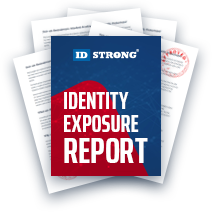5 Ways to Avoid Student Loan Forgiveness Scams
Table of Contents
- By Steven
- Published: May 30, 2023
- Last Updated: Jun 09, 2023

Debt relief scams proliferate when significant amounts of financial suffering and confusion arise. The Department of Education has created a golden opportunity for predators to scam collegians seeking relief from burdensome student loan debt.
16 million students have been approved, with applications already sent to loan servicers. Meaning; there is a tremendous amount of money on the table for scammers. Countless predators are salivating with such an opportunity; 1) Students rarely are the best judge of character, 2) Collegians have limited experience, if any, of how to manage or keep their money, 3) Students are trusting souls with limited knowledge of real-world predators.
Predators are out in force when billions are available for the taking. The whack-a-mole theory is in full force; as soon as one fraudulent company is shuttered, another takes its place. Student loan fraud will remain in full force until the last government dollar is spent (which could be decades).
The Federal Trade Commission (FTC) has made endless preparation for the onslaught of fraud complaints expected to come their way.
How Scammers Capitalize on Student Loan Forgiveness?
Borrowers on social media have been inundated with calls; some say scammers call at least once a day and sometimes more.
Student loan scammers’ calls are taken from the same old playbook used for years. Pressure the student into paying for services they can easily get for free. Predators create a sense of urgency to obtain personal information such as social security numbers and addresses in exchange for expediting their application.
Student borrowers receive calls similar to the following, and predators have specific requirements for approval, usually an immediate payment of $1,000.00 or more. Example:
“Hi Barbara, this is Chuck from (real-sounding company name and fake phone number) giving you a call regarding the upcoming student loan forgiveness. I have you pre-approved and possibly a full discharge from your student loans. It is imperative to call back so we can go over the details as soon as possible. It does look like your approved status will expire soon. I will keep your account in a pending status for the next couple of days.”
Borrowers should understand no fees are associated with the loan cancellation programs, including Student Loan Forgiveness for Public Service and Borrower Defense. Calling student loan borrowers is the most effective way for scammers to press their victims for money and information. It should be remembered no legitimate resource or government agency will ever ask for a social security number over the phone.
- Make certain you are dealing with a certified loan servicer or government agency. Scammers are adept at creating a viable persona to trick young borrowers in desperate need of cash. Predators who call are often trained by the best to sound exactly like a government representative, with all the right lines and key phrases. Websites with perfect-sounding titles can be developed in hours, and site content is usually spot-on.
- Young student loan borrowers are often ill-equipped to deal with high-pressure sales tactics. If a predator can get a victim on the phone, high-pressure tactics go into overdrive. Scammers are aware that the more time a victim takes to decide, the more research can be done. This is why hasty decisions are usually bad ones. Sales tactics often include; loan forgiveness is about to expire or interest, and monthly payments are headed up.
Scammers do their best to get any personal information from their victims. Even the smallest piece of info can cause significant headaches for victims. Identity theft is one of the largest online scams the FBI encounters. Make sure to report any suspicious behavior. Naïve and inexperienced students rarely know predator tactics and how they obtain victim information.

The first step a collegian should take if they are having trouble making student loan payments is to contact the loan servicer first. Fraudulent debt relief companies charge a fee for their services, which should be the first clue of a scam. Collegians searching for unaffiliated debt relief companies is not in itself a scam. However, it is a common way to stumble into a swindle.
- Aggressive sales language is one of the keys to spotting a scam. A predator’s first goal is to request an upfront payment, usually by email. Look for the tell-tale signs, such as improper grammar, incomplete sentences, or odd-looking capitalization. Be on the lookout for phrases including; “Act immediately to qualify,” “Your student loan is flagged for discharge,” or “Enroll before the program is discontinued.”
Websites created to “help” students obtain federal funding are plentiful. Fraudulent websites install malware and keyloggers to trick collegians into entering their FAFSA form data and passwords. McAfee and other well-intentioned sites give several good tips on what to look for in a fraudulent site, such as checking the padlock in the address bar.
- Predators create a sense of urgency in their recipients, giving them the best chance to swindle funds immediately. While student forgiveness funds are available, anything the government does, is not immediate. Urgency creates desperation to get in quickly before funds dry up. Legitimate relief companies provide helpful services such as finding a lender to lower the interest rate or consolidate loans. However, beware of any firm that requires a fee upfront.
Consider Real Resources When Seeking Student Loan Forgiveness
Plenty of legitimate resources are willing to help collegians manage or pay off their existing debt, contact StudentAid.gov to get started.
Predator callers and websites have telling clues to know whether they are legitimate.
- Always ask to do your research; if the caller refuses to give you their name or number, hang up immediately
- If the phone number seems fraudulent, plug it into a search engine; if the number is from a government office, the website will come up
- Make sure any website offering assistance has a .gov extension
- Be careful never to fill out unsubstantiated forms. Reputable companies will never ask you to sign such a document.
- If you are eligible for student loan forgiveness, complete the forms independently, you do not need help.
File complaints with the FTC, CFPB, or a State Attorney General if you suspect wrongdoing.



















































































































